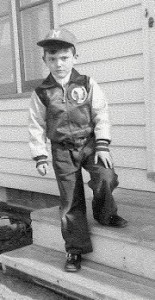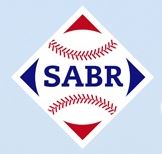 Happy Thanksgiving fellow baseball fans. Just thought I’d share ten reasons why I am thankful for baseball (originally published here a few years ago under “Why I Love Baseball”). Now, if a Thursday baseball game was only a Thanksgiving tradition (even if it had to be played in a domed stadium), turkey day would be complete. So, here are my ten reasons:
Happy Thanksgiving fellow baseball fans. Just thought I’d share ten reasons why I am thankful for baseball (originally published here a few years ago under “Why I Love Baseball”). Now, if a Thursday baseball game was only a Thanksgiving tradition (even if it had to be played in a domed stadium), turkey day would be complete. So, here are my ten reasons:
1. Baseball comes along every spring, accompanied by sunshine and optimism.
Baseball is the harbinger of better times. It signifies the end of winter (not a small thing if you’re from Minnesota like BBRT) and the coming of spring, a season of rebirth, new life and abundant optimism. Each season, you start with a clean slate. Last year’s successes can still be savored, but last year’s failures can be set aside (although rival fans may try to refresh your memory), replaced by hope and anticipation. On Opening Day, in our hearts, we can all be in contention.
2. The pace of the game invites contemplation.
Between innings, between batters or pitchers, and even between pitches, baseball leaves us time to contemplate what just occurred, speculate on what might happen next and even share those thoughts with nearby spectators. Baseball is indeed a thinking person’s game.
3. Baseball is timeless and, ultimately, fair in the offering of opportunity.
The clock doesn’t run out. There is no coin flip to determine who gets the ball first in sudden death overtime. No matter what the score, your team gets its 27 outs and an equal opportunity to secure victory. What could be more fair? And then there is the prospect of endless “extra” innings, bonus baseball for FREE.
4. Plays and players are distinct (in space and time).
Baseball, while a game of inches, is also a game of considerable space. The players are not gathered along an offensive line or elbow-to-elbow under a basket. They are widely spaced, each with his own area of responsibility and each acting (as part of a continuing play) in their own time frame. (The first baseman can’t catch the ball, for example, until after the shortstop throws it.) This enable fans to follow, understand and analyze each play (maybe not always accurately) in detail. And, baseball’s distinct spacing and timing makes it possible to see the game even when you are not there. A lot of people grinned at President Gerald Ford’s comment that he “watched a lot of baseball on the radio.” In my view, he was spot on. You can see baseball on the radio – you can create a “visual” of the game in your mind with minimal description. That’s why on summer nights, in parks, backyards and garages across the country, you’ll find radios tuned to the national past time.
5. The scorecard.
Can there be anything more satisfying than keeping an accurate scorecard at the ball park? It serves so many purposes. The keeping of a scorecard ensures your attention to the happenings on the field. Maintaining the score card also makes you, in a way understandable only to fellow fans, more a part of the game. That magical combination of names, numbers and symbols also enables you to go back and check the progress of the game at any time. “Oh, Johnson’s up next. He’s walked and grounded out twice.” It’s also a conversation starter, when the fan in the row behind you asks, “How many strikeouts does Ryan have today?” And, it leaves you (if you choose to keep it) with a permanent record of the game, allowing you to replay it in your mind (or share it with others) at will. Ultimately, a well-kept score card enhances the game experience and offers a true post-game sense of accomplishment.
6. The long season.
Baseball, so many have pointed out, is a marathon rather than a sprint. It’s a long season with ample opportunity to prove yourself and lots of chances to redeem yourself. For fans, the long season also represents a test of your passion for the game. Endurance is part of the nature of the true baseball fan. And, and in the end, the rigors of a 162-game season prove your mettle and that of your team. Not only that, but like a true friend … baseball is there for you every day.
7. Baseball invites, encourages, even demands , conversation.
Reason number two hinted at the importance of conversation, noting that the pace of the game offers time to contemplate the action (past and future) and share those thoughts with others. I love that about the game, but I am also thankful for the fact that whenever baseball fans gather, their passion comes out in conversation – and they find plenty to talk about:
- Statistics, statistics, statistics. Baseball and its fans will count anything. Did you know that Yankee Jim Bouton’s hat flew off 37 times in his 2-1, complete-game victory over the Cardinals in game three of the 1964 World Series? More seriously, statistics are part of a common language and shared passion that bring baseball fans together in spirited conversation. As best-selling author Pat Conroy observed “Baseball fans love numbers. They love to swirl them around in their mouths like Bordeaux wine.” I agree, to the fan, statistics are intoxicating.
- Stories, stories, stories. Baseball and its fans celebrate the game’s history. And, I’m not talking just about statistics. I’m talking about the stories that give this great game color, character and characters. Ty Cobb sharpening his spikes on the dugout steps, Babe Ruth’s called shot, Louis Tiant’s wind-up, Willie Mays’ basket catch, Dock Ellis’s LSD-fueled no-hitter.
- Trivia, trivia, trivia. This may fall close to the “stories, stories , stories” category, but fans cherish the trivia that surrounds our national past time – whether that trivia is iconic or ironic. For example, it’s ironic that the iconic Babe Ruth holds the best winning percentage against the Yankees of any pitcher with 15 or more decision against them (17-5, .773).
Basically, I took a long time to say I’m thankful that baseball fans will talk with passion about something that happened in today’s game, yesterday’s game, over time or even in a game that took place on August 4, 1947. And, as a bonus, all this conversation – all the statistics, stories and trivia – make the games, moments within the games and the characters of the game (heroes, goats and mere participants) as timeless as baseball itself.
8. The box score.
BBRT editor’s mother used to refer to an accordion as “an orchestra in a box.” That’s how I view the daily box score – the symphony of a game recorded in a space one-column wide by four inches deep. Some would say the box score reduces the game to statistics, I would say it elevates the game to history. What do you want to know about the contest? Who played where, when? At bats, hits, stolen bases, strikeouts, errors, caught stealing, time, attendance, even the umpires’ names? It’s all there and more – so much information, captured for baseball fans in a compact and orderly space. I am, of course, dating myself here, but during baseball season, the morning newspaper, through its box scores, is a treasure trove of information for baseball fans.
9. The irony of a team game made up of individual performances.
While baseball and baseball fans live for individual statistics and, while the spacing of the players drives individual accountability, the game is, ironically, deeply dependent on the concept of “team.”
Consider the offense. Unlike other sports , where you can deliver victory by giving the ball or puck – time and time again (particularly as the clock runs down) – to your best runner, skater, receiver or shooter, in baseball, your line-up determines who will be “on the spot” and at the plate when the game is on the line. It may be your .220-hitting second basemen, rather than your .320-hitting outfielder. Yet, even as the team depends on the hitter, he is totally alone in his individual battle with the pitcher. And, achieving individual statistics that signify exceptional performance also demands a sense of team. You don’t score 100 runs without a team mate to drive you in (although the statistic remains yourmeasure of performance) … and, you don’t drive in 100 runs if no one gets on base in front of you. And, can you think of any other sport that keeps track of – and honors – the team-oriented “sacrifice.”
On defense, the story is the same. A ground ball pitcher, for example, needs a good infield behind him to optimize his statistical presence in the “win” column. And the six-four-three double play requires masterful teamwork as well as individual performance – duly recorded in the record books as an assist for the shortstop, a putout and an assist for the second baseman and a put out for the first baseman. Then there is the outfield assist – a perfect throw from a right fielder to nail a runner at third earns an assist – even if the third baseman drops the ball and earns an error. Two individual results (one good / one bad) highlighted, but without the necessary team work – a good play on both ends – a negative outcome in terms of the game.
Ultimately, baseball is a game of individual accomplishments that must be connected by the thread of “team” to produce a positive outcome.
10. Baseball is a treat for all the senses. (Indoor ballparks fall a bit short here).
The sight of a blue sky and bright sun above the ballpark or a full moon over a black sky above a well-lit stadium. The feel of the warm sun or a crisp evening breeze. The scent of freshly mowed grass or steaming hot dogs. The taste of cold beer and peanuts. The sound of the crack of the bat, the cheers (or moans) of the crowd, the musical pitch of the vendors. Baseball assaults all the senses ― in a good way.
Now, I could list lots more reasons I’m thankful for this game: its combination of conformity (all infields are laid out the same) and individualism (outfield configurations not so much); its contributions to culture (literature and movies); its strategy (hit-and-run, run-and-hit, sacrifice bunts, infield / outfield positioning, pitching changes, the double-switch, etc.); triples; steals of home; the 6-4-3 double play; knuckleballs; Eddie Mathews (my boyhood hero); the 1957, ’65, ’87 and ’91 World Series; The Baseball Reliquary; hots dogs and cold beer; Twins’ Game 163 in 2009; The Society for American Baseball Research; and more. But to protect myself – and BBRT’s readers – I’ve limited myself to ten. I probably could have saved a lot of time and words had I just started with this so-perfect comment from sportscaster Bryant Gumbel, “The other sports are just sports. Baseball is love.” That says it all.
I tweet baseball @DavidBBRT
Member: Society for American Baseball Research (SABR) ; The Baseball Reliquary; Baseball Bloggers Alliance.






When I was 8 years old in 1945,my dad gave me a crash course in baseball 101,Cubs history, how to keep a score card and a special chapter in Hank Greenberg. Then took me to my first game at beautiful Wrigley Field(when it was). Soon after,baseball became the official language at our kitchen table. When the Cubs clinched the pennant, I asked him to take me to the World Series between the Tigers and the Cubs. He felt I was too young,however he made me a PROMISE-he would take me when the Cubs won their next pennant!
In ’46, I began cleaning the grandstands after a game and earned a free pass to the next game. I heard the expression “Wait until next year!” for the first time. In ’47, I went to my first Opener. I got to see Hank Greenberg play in his first N.L. game for the Pirates, and had mixed emotions when his 2 out double in the 6th inning drove in the games only run to beat my Cubs. A month later I got to see Jackie Robinson make his Chicago debut for the Brooklyn Dodgers. Each new season I read “Who’s who in Baseball?” And the Chicago Sports pages,as well as the baseball bible-The Sporting News. I even went to bed holding a baseball and hope to dream about baseball too.
Since that time I must of listened to thousands of games on the radio,and thousands more on tv, and read more then my fair share of box scores and been to well over a thousand games at the Friendly Confines. I got to see many rookies who went on to become Hall of Fame members. I even got to meet many of my idols along the way. Jack Brickhouse invited me into the booth, and Harry Caray introduced me on his 10th Inning show as John Q. Public-The Fan! For over 25 years I roamed in and around the Friendly Confines as the “Bleacher Preacher” and Inducted into the Die Hard Cubs Fans Hall of Fame. In 2014 I was recipient of the Hilda Award,named after the fable fan of the Brooklyn Dodgers at Ebbet’s Field known for her cowbell. I read your story her and realize how lucky we were to be baseball fans, and when we can voice our opinion about our National Pastime.
This year, it looked like I was going to get to the PROMISED Land that my dad made to me 70 years ago… but be that as it was… it’s Wait Until Next Year time again. As always, I love to hear those magic words…PLAY BALL!